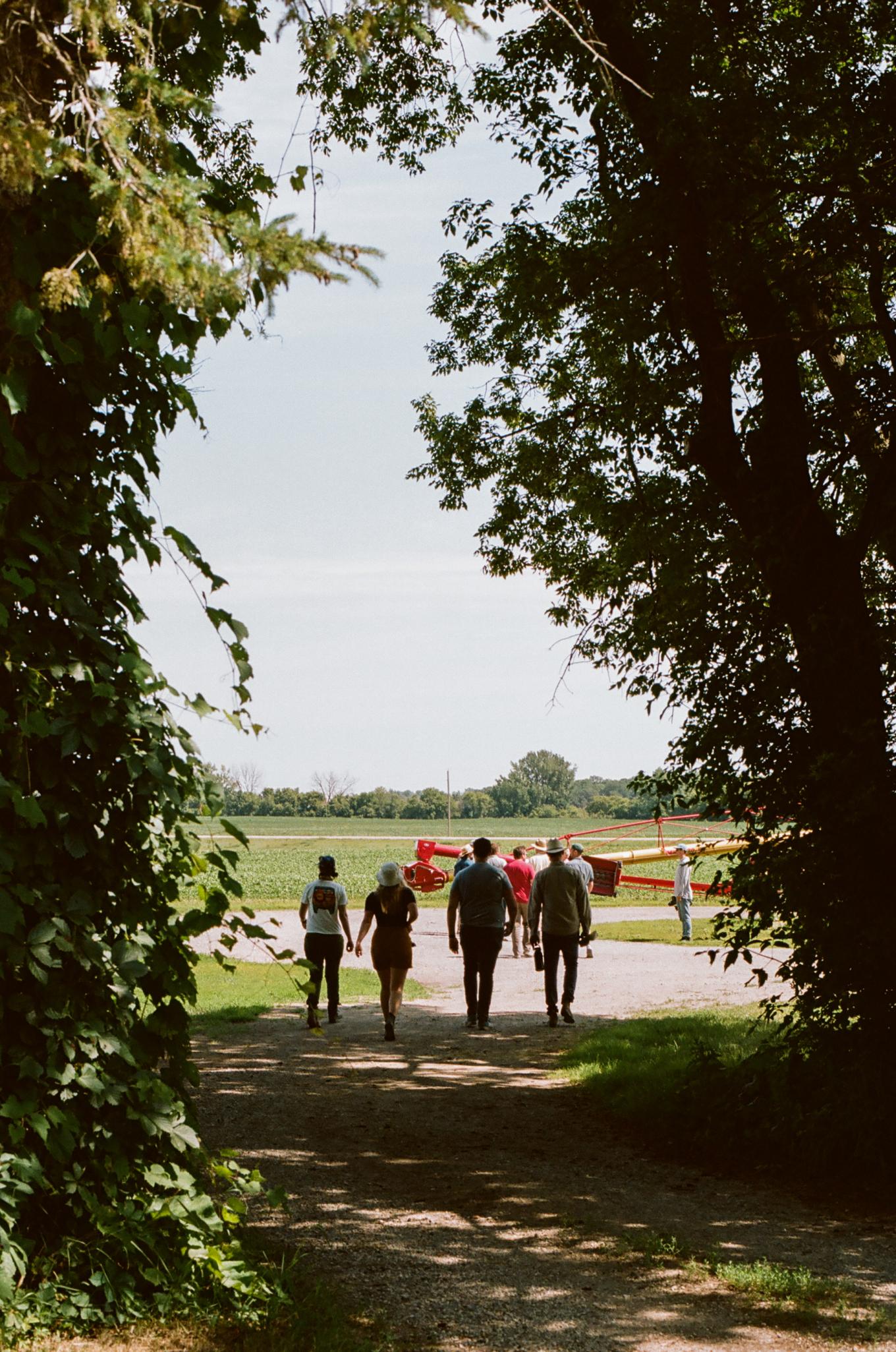
The Mad Agriculture Journal
a Call to Farms
Published on
June 19, 2023
Written by
Woody Tasch
PHOTOS
Sophia Piña-McMahon
This is a call to farms. It is and is not a response. It is not a response to any one brigade’s route, the military mind that mapped it or the propaganda that is translating it into ideological talking points. It is a response to the forces that turned—lo these few brief millennia, and lo’er these few brief centuries, and lo’er yet (you’d think lo’est, surely, but no, there seems no end to the Great Acceleration) these few brief decades, these few brief tweets, these few brief algorithmic breaths, these few brief ultrafast bursts of ones and zeroes—the Fertile Crescent into the Oil Patch and amber waves of grain into food as a store of cheap, shelf-stable calories, food as fuel for internal combustion engines, food as industrial power.
This is a call to farms because there is healing to be done. Trust to be restored. Mutuality to be rekindled. Biodiversity to be valued. Conviviality to be nurtured. Carbon to be sequestered. Bread to be broken. Affection to be shared. Humility to be cultivated.

III
A call to farms…
What kind of poetry is this, sprouting
in the face of…in the face of…
this warfare on the Steppes,
these implosions of the impossible,
wounds of geopolitical reductionism wrought,
ruthless obliterations of all poetic ought,
dropping from the sky
as if peace were a trinket?
A call to farms in the shadow of…
in the shadow of…we do not dare to think it.
A dull inevitability accompanies wartime
punditry.
The Dnieper flows to the Black Sea.
Everything that had been taught, erased.
Every step that had been forgotten, retraced.
Every seed that had been planted, laid waste.
Tincture of treaty. Cloud of indecision.
The cancer had only been in remission.
Back in the Fifties, in countless dens of countless
tract homes in countless U.S. suburbs, countless
boys lay prone, playing with plastic army men
in various positions, making shooting sounds,
World War II in their heads in some way,
fathers in their heads in some way,
survival in their heads in some way,
being at such a great yet minimal remove
in their heads in some way, vaguely aware,
but not, of being a generation removed,
a continent removed, an American Dream
removed, a whole that never would be whole
removed, and removed again, displaced, free,
victorious, unwittingly emboldened, as only
those on the right side of history can be.
Elsewhere, gods and ghosts cavorted,
unsure whether to celebrate or weep.
Under the banner of Democracy’s victory,
Technology consorted with some demi-goddess
or other and Nuclear Proliferation was conceived.
The ghost of Stalin stalked the empty Yalta grounds.
Around Gaia’s slender shoulders was draped
the shroud of unlimited economic growth —
with a certain alienated majesty she wore it,
while at the banquet table, revelers shouted.
The festivities were not long-lived.
Everything was put on the market.
There were plenty of buyers.
There were as many buyers
as there were shares to be bought.
As there were battles to be fought.
As there were preachers to thunder.
As there were desks to hide under.
Then, as the millennium wound down
were myriad financial instruments sown,
the broad acreages of our non-bewilderment
receiving them without so much as a whimper.
Who knew there could be so many ways to maximize return and minimize chance?
Scattered in fields of Ukrainian wheat,
unexploded ordnance.
XII
Poetry is the sweet nothings whispered
by Rhyme in Reason’s ear
by Ecology in Economy’s ear
by Aphrodite in Apollo’s ear
by Wendell in Tanya’s ear.
From such sweet nothingry
do somethingries shoot,
allowing possibility and peace to bloom.
For a few precious moments,
even the dullest root, though damaged
by war’s cruelest winter, finds ways to stir
according to the seasons.
